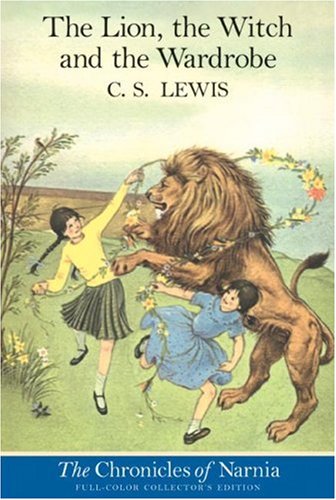R. J. Anderson on Story Evangelism
 Should Christian fiction evangelize?
Should Christian fiction evangelize?
It’s a good question, but it depends what we mean by asking it.
If we mean “Should fiction written by Christian authors illustrate and reflect Biblical truth in such a way that the Holy Spirit might use it to touch the heart of a non-Christian reader, and make him or her more sympathetic to the gospel?” Then I would say yes. After all, so-called Christian fiction that does not reflect or uphold Biblical truth has no right to call itself Christian, any more than a so-called disciple of Jesus who persistently refuses to live in obedience to Christ. And we should all be striving to glorify the Lord in everything we do.1
If, however, what we mean is “Should all or most Christian fiction contain a clear presentation of the gospel message, with the aim of showing the reader how to be saved?” then my answer is, emphatically, NO.
I say this for three reasons.
Firstly, fiction is simply not the right medium for a clear presentation of any doctrine, the gospel included. Stories can shed light on certain aspects of Biblical truth and teaching, but only in a symbolic or illustrative way, not as an end in themselves. They can challenge and inspire readers to think more scripturally, sometimes in a very powerful and even life-changing way, but even so they are merely a signpost to God’s truth, not an exposition of it.
Of course, many Christian authors feel uncomfortable with the idea of merely telling a story which the reader may not be mature or spiritually astute enough to interpret correctly, and they worry that other Christians (including Christian publishers) may say that their book isn’t Christian enough. So they include some prophet, priest or messiah figure (or perhaps even a mysterious voice from heaven) who enlightens the protagonist about the way of salvation.
But as soon as a work of Christian fiction tries to evangelize in the sense of showing the reader how a character becomes “saved” and nudging them to do likewise, then it has ceased to be a story at all. Instead it becomes a sermon badly disguised as fiction, where the characters are merely props or mouthpieces for the message the author wants to convey — something that no one who is being honest can claim is good reading, even if they agree with the sentiment behind it. Such a scene might as well be one of those TV commercials where two women jogging together launch into stilted exposition about hormone treatments or their favorite yogurt. However well packaged the ad might be, we all know that people don’t actually talk that way, and the whole conversation seems fake and even creepy as a result. It’s not good advertising, and it definitely isn’t good fiction.
 Secondly, I say NO to the idea that Christian fiction ought to evangelize in this way because I don’t believe it’s even possible to write a story that, by itself, can lead a non-believing reader to salvation. Ideas and allusions that seem obvious to an author steeped in Biblical language and symbolism often go whizzing past a reader who isn’t actively looking for them — consider all the children and even adults who’ve read The Lion, The Witch and the Wardrobe without ever realizing that Aslan is a Christ figure, or indeed that there is anything Christian about the book at all. Even the Gospels themselves are frequently misunderstood and misinterpreted by people reading them for the first time, so do we really think we’re going to do better with fiction?
Secondly, I say NO to the idea that Christian fiction ought to evangelize in this way because I don’t believe it’s even possible to write a story that, by itself, can lead a non-believing reader to salvation. Ideas and allusions that seem obvious to an author steeped in Biblical language and symbolism often go whizzing past a reader who isn’t actively looking for them — consider all the children and even adults who’ve read The Lion, The Witch and the Wardrobe without ever realizing that Aslan is a Christ figure, or indeed that there is anything Christian about the book at all. Even the Gospels themselves are frequently misunderstood and misinterpreted by people reading them for the first time, so do we really think we’re going to do better with fiction?
There’s a kind of arrogance, I think, in the idea that if we write cleverly enough we can preach the gospel in our stories and convince readers to accept it. The truth is that it’s the Holy Spirit who opens people’s eyes and hearts to the truth, and He often works in ways we can never expect or anticipate. Our business is not to try and do His job, or even make His job easier (as though He needs our help!) but simply to write the very best stories we can in good conscience, and let Him choose what He will make of them.2
The third reason I say NO to gospel-preaching fiction is because that kind of fiction has no appeal whatsoever to non-Christian readers, and therefore no audience outside the Christian bookstore market. Which means that when we include the equivalent of four points and an altar call in our stories, we aren’t actually leading anyone to Christ — all we’re doing is giving warm fuzzies to a bunch of readers who already believe.
If there is any real value to “Christian fiction” as a distinct genre, then it ought to consist of honest, searching, well-told stories about the challenge of living the Christian life. It ought to inspire readers to dig deeper and grow stronger in their faith, not merely make them feel nostalgic and perhaps even a little smug about being “on the right team”. The message of salvation is precious and even essential, but it’s the milk we give to newborn believers, not the spiritual meat that growing Christians need. So when we insist on peppering our fiction with conversion scenes, who are we writing them for?
Evangelism, as taught and shown in the New Testament, is an activity that takes place between believers meeting non-believers face to face, and interacting with them in a personal (even if not necessarily individual) way. A book cannot take the place of a person, nor can it interact. By trying to make fiction do the work of sharing the gospel, we are not only sharing the good news in a clumsy, unsatisfying and ultimately ineffective manner, we may be shirking our own responsibility to share our faith in the way Christ Himself intended.
Yes, stories written by Christians should reflect what the gospel of Christ has done in our hearts and lives. But unless that truth grows naturally, even unconsciously out of our efforts to tell a captivating and well-crafted story, we will have no audience, and therefore no ministry.
Should Christian stories evangelize?
This is a crucial issue for anyone who loves stories but loves Jesus more, and wants to glorify Jesus through our enjoyment of stories or our making of stories.
During October our new SpecFaith series explores this issue.
On Thursdays, reviewer Austin Gunderson and writer E. Stephen Burnett host the conversation with interactive articles. On Fridays and Tuesdays, guest writers such as novelists and publishers offer their responses to the question.
We invite you to give your own answers to the #StoryEvangelism conversation.
- Of course, no book is going to perfectly or completely represent God’s truth, any more than our own lives as believers do. As human beings we inevitably fall short in one way or another, and so do the stories we create. But we authors who are Christians should always do our best to write for God’s glory, in the humble hope and prayer that He might graciously deign to use some aspect of our stories to draw readers closer to Himself. ↩
- Unfortunately, this approach also leaves us open to being misunderstood and even rebuked by other Christians who don’t understand our hearts and motives, or appreciate what we’re trying to say. It’s painful when the very people who ought to be encouraging and praying for you end up belittling your work or even opposing it, because you’re storytelling when they think you ought to be preaching. But God knows our hearts, and He’s the One to whom we ultimately have to give account. ↩









































Terrific points, RJ! Especially reminding us it’s the Holy Spirit’s job to save. I don’t know about anyone else, but this takes a HUGE weight off my writing shoulders. I keep reminding myself that the book of Esther never mentions God by name, but still shows clearly His hand in our lives. Whew! So, I can write a story – just a story – with no hidden agenda. Love it!!
Thank you, Pam! I’m so glad the article was an encouragement. And yes, I think Esther is a good example of how a story that doesn’t even mention God’s name, let alone show Him appearing to people or communicating with them in any obvious way, can still show His sovereign power and provision at work. Christian writers will always have a “hidden agenda” as every other writer does, which is to represent the truth as we see it (which, if our understanding is informed and enlightened by God’s Word as it should be, really will be the truth and not merely our opinion or wishful thinking). But we don’t have to impose a heavy-handed moral onto the story or write a blatant allegory to accomplish that, and it’s a great deal more likely to reach people if we don’t.
Wonderful post. Thank you for sharing!
Thank you, Parker! Happy you enjoyed it.
This is a fantastic summation, and I particularly love this bit:
A great statement of the position I’ve been trying to find a way to verbalize for quite some time. And it’s a pointed dissection of why I can’t write Christian fiction. Christians who read Christian fiction aren’t interested in what I’m writing. Period. And I can’t write the fiction they are interested in. Period. It’s just…not my game.
Thanks, Dane. I feel the same tension about my own writing. I want my stories to reflect my deepest convictions and have something worthwhile to say to the reader, but I honestly don’t know how to fit the expectations of the current evangelical Protestant Christian book market (even though I’m an evangelical Protestant myself!) and I don’t think my stories would be any better if I tried. I write for the kind of reader I was myself at thirteen (or sixteen, depending) and also the kind of reader I am now at forty-five, and the best thing I can hope for is that it will resonate with people who love the same kinds of stories and characters and themes that I do.
Lovely post!
Those were huge paradigm shifts for me, once I started branching out and realized that the whole Christian/non-Christian fiction thing existed. And yes, a huge weight off the shoulders.
I was a bit relieved to re-read it and find out that you hadn’t said everything I was planning to say in your earlier post after all. 🙂 Thanks.
Your points here are excellent, the first point especially. The thing that helped me out was a realization of who my audience was. I don’t write my books to evangelize those who are outside the faith, but to encourage and teach those who are inside. I can shoot a bit more “straight” with that audience.
Yet the bottom line is as you stated it: no metaphor or series of metaphors ever holds up completely in teaching truth. It is always better to stay true to the story and not try to force it into a box of truth…
Honestly, I would love to read more Christian fiction that actually tackles Christian discipleship on a deeper level, instead of being stuck in a “vaguely heartwarming conversion / preservation narrative” rut. Glad to hear that’s what you’re interested in, and thanks for your comment.
I’m not sure I can completely agree with your points.
For example, what about the testimonies of people who say they came to faith in Christ through reading the “Left Behind” books? I’ll not get into various ideas about the end times, but if the books did speak about the Gospel and people were converted, and those conversions were at least in part due to the books, then how can it be said that presenting the Gospel in fictional stories cannot have an effect on the readers? Or even that fiction is not a good medium through which the Gospel can be presented?
Another example would be “The Pilgrim’s Progress”, a story considered among the classics. It seems iffy that this story could be dismissed as not even a story, but as simply a badly done sermon. Nor even to say that it has no appeal to anyone other then Christians.
As much as I love being on the anti-evangelizing bandwagon, the point about The Pilgrim’s Progress makes a lot of sense. I think the main thing is for Christian stories to present the human existential crisis in a real way. Gross “grittiness” isn’t True Reality that makes for High Art, but existential pain is. I think Christian works that have a strong sense of existential pain could be have literary merit and appeal and have a real potential to reach unbelievers whose hearts might be open to faith. I think John Bunyan’s portrayal of the human crisis in Christian terms was probably effective for his time, though anything like overt moral allegory now would be ineffective now.
(I suppose joy is the flip side of existential pain, but I fear the Christian hedonist movement skips past the mostly necessary step of attaining joy through deep pain.)
That’s an interesting point about pain, Paul. I think you might be on to something there… but from what I’ve seen, that kind of thing is not popular in Christian fiction today. Perhaps as Christians, we’re reluctant to address those kinds of deep spiritual and psychological wounds because we fear it’s prurient (or, on the liberal side, intolerant) to talk too much about sin, or because it might make the gospel seem weak or ineffectual if Christians aren’t “inright, outright, upright, downright, happy all the time.”
More than joy or pain, it would be good if Christian writers focused on truth. Creating too-perfect good guys tends to fall flat, because they can come off as not very real.
But especially for Christian writers, while we may want to create characters that are morally upstanding, we also have to bear in mind the reality that for us humans “There is none righteous, no, not one” and “There are none who do good, no, not one”.
And that is right where the Gospel comes in. None of us are good enough, and we need to be careful of making our characters seem that way.
One book I read a few months ago kinda hints at what I mean. One of the characters, a Christian who had a ministry of sorts of helping married couples, gets seriously ill and will soon die. When a friend visits him in the hospital, he tells that friend that “I’ve done these seminars to atone for my sins”. This would have been a good time for that friend to show this man the truth about how his sins were atoned, that his good works were unable to atone for even the least of his sins, but that Christ’s sacrificial death was what atoned for his sins.
Eh, Pilgrim’s Progress is generally only considered a classic because it was hugely popular for quite a long time and lots of other stuff references it. Anymore, it’s studied more because of its socio-political context rather than because of any artistic significance. Milton’s Paradise Lost is generally considered more valuable as a classic.
This, too. Good point.
(Also, and I say this with all respect for Bunyan and his theology, it’s dead boring. I vastly prefer Helen Taylor’s Little Pilgrim’s Progress, twee and clunkily written as it is in parts, to the original.)
Despite all the usual caveats about the accuracy of Wikipedia, this bit actually has a citation, so:
That being said, God works in mysterious ways, so I won’t rule out the possibility that there genuinely are a few non-Christians in the world who got hold of a copy of Left Behind, read all the way through it, and found it so convicting and convincing that they fell to their knees and cried out to God in repentance. I don’t know any such people myself, but it is possible. Nevertheless, I would be very surprised if those people had not heard the gospel explained in some more direct, non-fictional and personal way beforehand, by Christian relatives and friends and co-workers whose words and actions helped soften their hearts to the message. That is how the real work of evangelism is done.
And on a practical level, the extraordinary, one-in-a-million popularity of the Left Behind series (which is far more due to its sensational portrayal of premillennial dispensationalism and the train-wreck fascination it inspired in some non-Christian readers than anything else) is not an example other Christian authors can follow, because the other 99% of books published in the Christian market will never be seen or heard of by anyone who doesn’t shop in Christian bookstores.
As for Pilgrim’s Progress, it’s not even a novel as such; it’s written more like a dialogue or a play. It’s a classic for many reasons (my favorite being its status as arguably the first high fantasy novel of any kind, Christian or no), but it is far more in the nature of an instructive tract or a sustained argument than the kind of descriptive, narrative fiction that readers and publishers are looking for today. As such, again, it’s really not a model we can follow, because Pilgrim’s Progress simply would not have been published, let alone considered a classic, at any time later than the 18th century.
TL;DR: We can’t look at books that were written in 1678 to tell us how to communicate the gospel to readers today. Nor can we treat an extraordinary, even bizarre cultural phenomenon like Left Behind as an example of how it should be done, especially when we have only the vaguest anecdotal evidence that any non-Christians have ever been converted to Christianity by reading it.
In regards to claims about Left Behind, I’ll put up this link from their own website, a page of testimonials.
http://www.leftbehind.com/03_authors_testimonials/viewTestimonials.asp?pageid=744&channelID=80
That people may have heard the Gospel from other sources, too, is something to note, but that having it presented to them in a book they were reading may have been helpful to them is also something that should not be overly dismissed.
Nor should it’s popularity be used to say that the other books should avoid the Gospel.
Maybe Pilgrim’s Progress would not be published today. But then, it’s likely that many great novels from yesteryear would not be published today. That says more about publishing today then the novels. But if that story (call it or don’t call it a novel, as you wish) can speak to that time and times long after, and still do so while presenting the Gospel, and if Left Behind can do the same thing in the not-so-distant past, then I think we may well still be able to write stories that present the Gospel and teach sound doctrine without them being badly done sermons.
I’d love to believe it, Audie, but I’ve never seen one. The closest example I can think of that’s both well-written and accessible to a non-Christian audience is The Lion, The Witch and the Wardrobe — and even that book, though Christians can easily recognize it as a reimagination of Christ’s death and resurrection and read Edmund’s story as a conversion narrative, does not “present the gospel” or “teach sound doctrine” in the way you describe. It’s based on the gospel, and it’s based on sound doctrine, but it doesn’t preach it systematically.
Pedantic note: It’s not a novel. It’s an allegory. I’d even call it Protestant propaganda.
Novels can’t be allegorical, or allegories can’t be novels? C.S. Lewis wrote an allegory story called “The Pilgrim’s Regress”, and I think it can easily be put in the broad category of “novel”.
I’m working off a technical definition of “novel,” which Lewis’s Pilgrim’s Regress also doesn’t meet.
But aside from being pedantic, I’m trying to find a tactful way of saying that PP just isn’t that good even if it is culturally significant. If we compare it to other dead white dudes’ work, it doesn’t have Swift’s wit, nor Milton’s elevated style, nor Chaucer’s personality (bonus: none of those are novels, either).
You must pardon me if I don’t see what being dead, white, or a dude has to do with this current discussion, save insofar as I referenced a book that was written quite some time ago, so yes the author would not be living on this earth today.
As far as Pilgrim’s Progress not being “that good”, that is of course your opinion, and I can’t argue with or against it.
Excellent article, thank you! This series has been really good, thank you to Speculative Faith for doing it. We need more conversations like this where we as Christian writers can think a little more deeply about our craft and dialogue with each other.